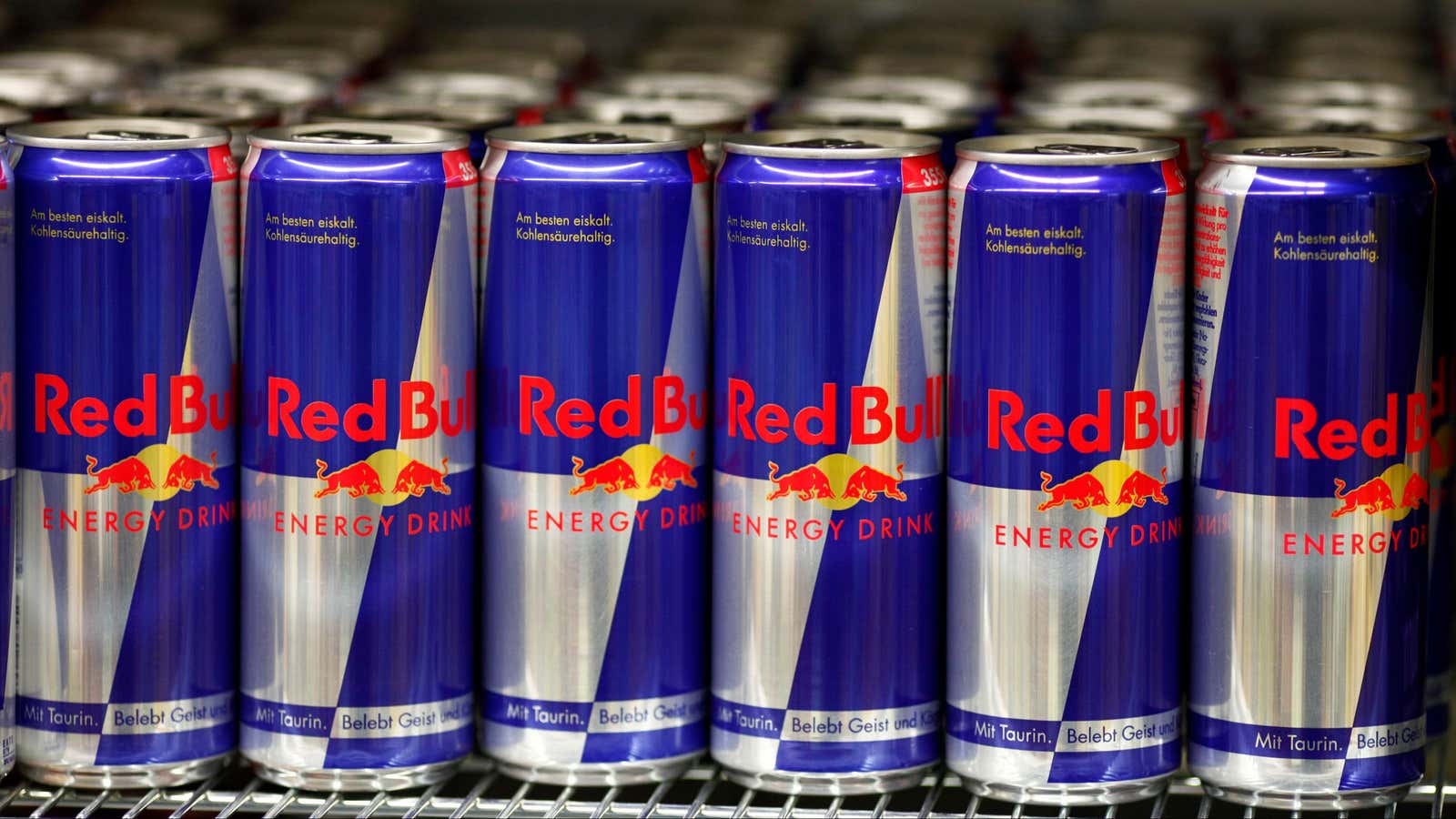Many adults rely on the added jolt of caffeine to get them through the day. But that’s the last thing kids need, according to the governments of England and South Korea.
This morning, England woke up to the news that the government is preparing to ban the sale of energy drinks like Red Bull to children amid growing concerns about the negative health impacts of the high-caffeine, high-sugar drinks. Meanwhile, South Korea announced plans to ban the sale of coffee in schools by September 14. Korean authorities justified the ban by citing reports of children experiencing dizziness, heart palpitations, trouble sleeping, and nervousness after consuming caffeine.
Caffeine is the most commonly used psychoactive substance in the world. It is classified as a stimulant drug for its ability to arouse the central nervous system. Research has identified a range of possible health benefits and risks for adults. But the consumption of caffeine is generally not recommended for kids. The American Academy of Pediatrics, for example, recommends that children avoid high-caffeine energy drinks altogether, stating that “caffeine and other stimulant substances contained in energy drinks have no place in the diet of children and adolescents.”
In both England and South Korea, the bans are part of a wider campaign to encourage healthier eating habits, especially among children. South Korean officials have implemented a strategy to deal with rising obesity rates among students, including imposing restrictions on children’s access to energy drinks. About 17% of primary and secondary students were obese in 2016, according to government figures, up from about 12% a decade earlier, and the prevalence of Type 2 diabetes is on the rise.
The English ban on energy drink sales to children is also part of the government’s childhood obesity strategy, since energy drinks, in addition to being high in caffeine, often contain a lot of sugar. Public officials have announced they are conducting a consultation to determine whether the purchasing restrictions will apply at the age of 16 or 18.
The bans come in response to the reality that, despite strict labeling rules and public awareness campaigns, children are still consuming highly-caffeinated and sugary drinks. Under current labeling rules in the UK, for example, any drink that contains over 150 milligrams of caffeine per liter (0ther than tea or coffee) is required to have a warning label stating that the drink isn’t recommended for children, or for pregnant or breastfeeding women. But, according to the government, more than two thirds of UK children aged 10-17, and nearly a quarter of those aged six to nine, are energy drink consumers.
In addition to limiting kids’ access to caffeine and energy drinks, the South Korean government has also banned TV commercials for fast food, sugary snacks and high-caffeine beverages during times when most children’s programs air. But after a drastic decline in early 2016, energy-drink sales in the country continued to rise in 2017.
